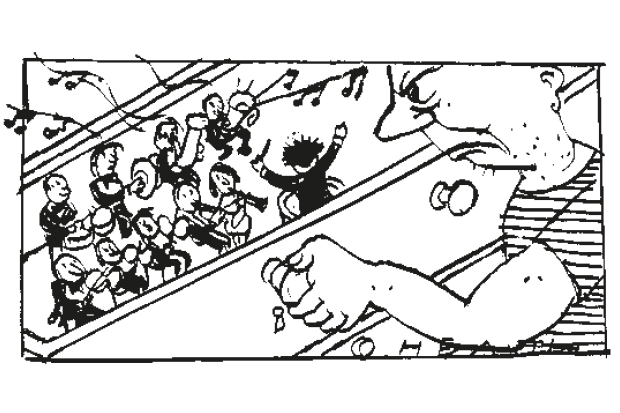BBC Proms 2016 is about as exciting as my sock drawer. But it’s unclear who exactly is to blame. The new head David Pickard claims only half the stalest socks are his — the rest inherited.
The festival enjoys an incredibly privileged position. Some might even say it’s dangerously spoilt. Free from commercial pressures, free from government interference, an entire TV and radio network at its propagandistic disposal, the two-month summer blowout is a mighty musical monopoly. It can do what it wants with pretty much whomever it wants.
Last year it dedicated a night to Eric Whitacre, the Noel Edmonds of contemporary music, and hosted an Ibiza prom 20 years after everyone stopped caring about Ibiza.
Fine. We allow the Proms this freedom so that, alongside its more obvious duties, it can act as an incubator for innovation. An educator. ‘The one thing in my view the BBC should not be thinking about is ratings,’ John Whittingdale told the Guardian.
Yet whoever put together this year’s selection has the imagination of a dead fish. We get Bruch’s Violin Concerto, Verdi’s Requiem, Holst’s The Planets, Colin Matthews’ 2,765th Proms piece, a Strictly Come Dancing Prom, a Shakespeare theme… It’s programming on autopilot.
Sure, musical greatness sometimes means musical obviousness. But you don’t have to ignore Beethoven, Brahms, Tchaikovsky, Mahler; just do them interestingly. Similarly the performers and orchestras we get to hear are not necessarily the only ones we should hear. They’re just the ones pushy agents have convinced lazy programmers we ought to hear — the ones you’ll hear all year round.
Are we happy to subsidise a festival whose purpose is now simply to repeat, in terrible acoustics, what happened a few months earlier down the road? Is that what the Proms has become? A catch-up service? Barbican+1?
The Proms was once a place for adventurers. In the 1970s half the BBC Symphony Orchestra took up residency in a railway-repair shed, the Roundhouse, and bashed out the very latest bit of invigorating modernism by Cage, Stockhausen, Boulez and Messiaen.
Today the new commissions show the modern music establishment at its worst: advancing friends, privileging cliques, championing safeness.
Festival directors will inevitably be partial. But it’s up to an all-embracing jamboree like the Proms to realise it might be slipping into favouritism and stagnation and to try harder. To hunt around. To be bold. The top team, however, seems to care little about any of this. You won’t see them at new-music gigs. You won’t spot them at contemporary-music festivals. You will, however, find them cosying up to music publishers.
None of this counts as artistic programming: it’s brown-nosing. That anyone has the cheek to say they’ve programmed this year’s Proms is astonishing. That someone got paid for it is outrageous. Pickard has come from Glyndebourne, a brilliant but small operation catering to a narrow audience. There’s a big difference between throwing together six operas a year for some sozzled toffs in Sussex and getting your head around all that music has to offer and celebrating that diversity in nearly 100 concerts.
The Proms likes to think of itself as the world’s greatest classical music festival. This effort isn’t even half-decent.






Comments